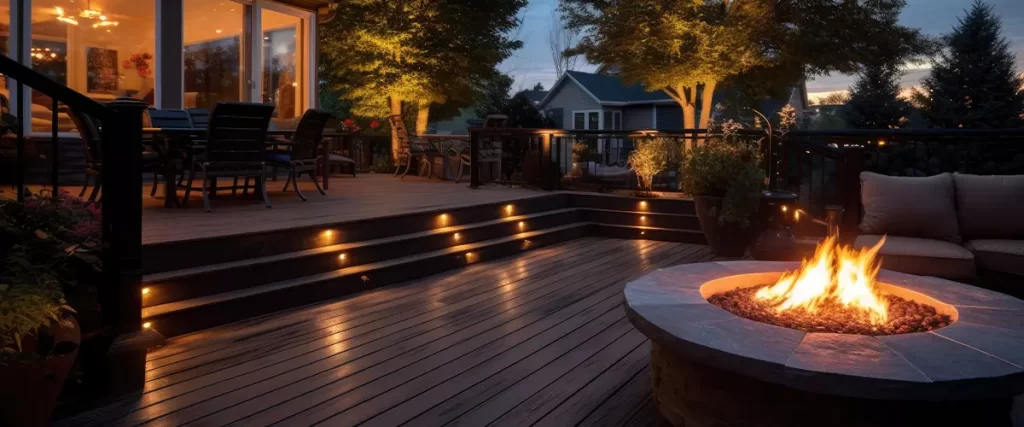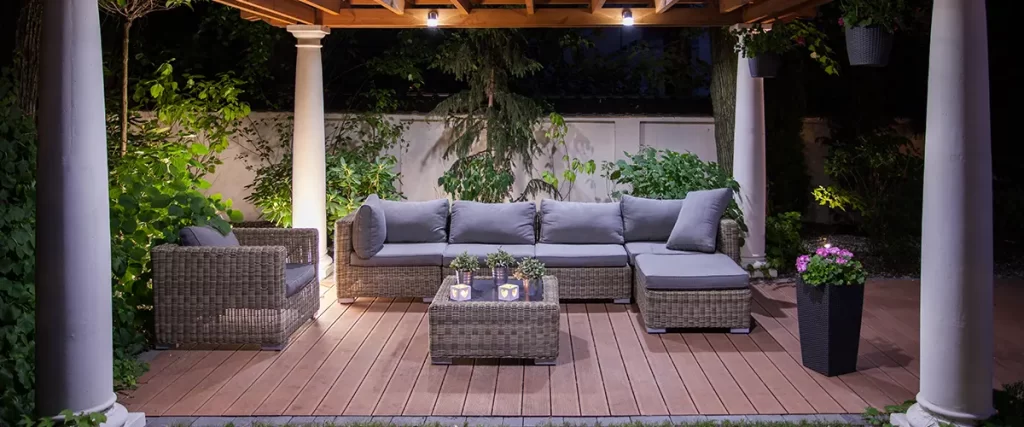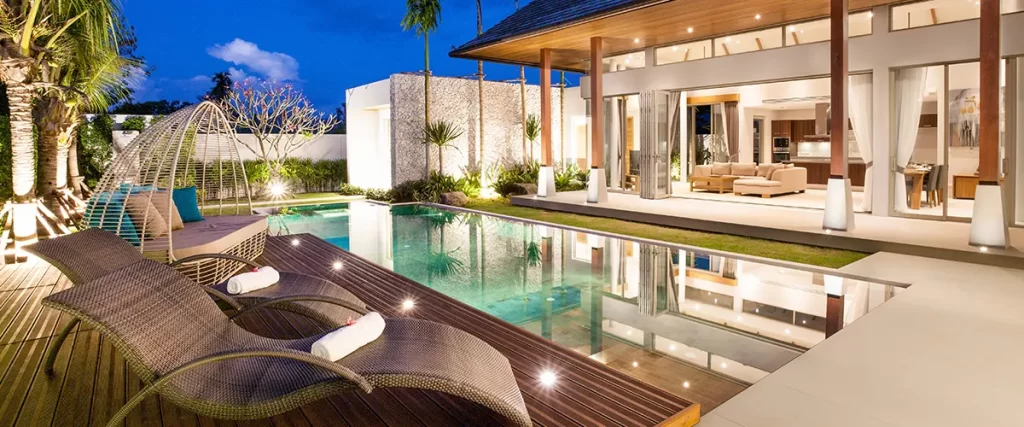Imagine this: a beautiful evening breeze rolls in, you step onto your deck with a glass of iced tea in hand, ready to relax, but within minutes, you’re swatting at mosquitoes and eager to retreat indoors. If you’re nodding along, you’re not alone. Omaha’s humid summers can turn your dream deck into a mosquito magnet.
That’s exactly why Omaha deck insect control is more than just a nice-to-have it’s essential. And with the right mosquito deck solutions NE, you can transform your space into a truly inviting outdoor retreat. Let’s dive deep into everything you need to know to build a bug-resistant deck you’ll love.

Why Mosquito Season Is Tough in Our Area
First, let’s talk about what really makes Midwest summers mosquito central. Nebraska, like much of the Great Plains, has hot, humid summers with plenty of rain. That combination creates perfect breeding conditions for mosquitoes. Add shaded gardens, nearby wetland areas, and low airflow, and suddenly your deck becomes a buggy hotspot.
Point being: this isn’t just a seasonal annoyance. Mosquitoes here can carry West Nile Virus, so keeping them away from your family matters. And let’s face it, you want to enjoy your deck, not wage war against tiny pests.
Planning a Bug‑Resistant Deck from the Ground Up
Here’s where it gets fun. You don’t have to settle for bug-centric evenings anymore. Let’s build a foundation that fights back.
1. Smart Material Choices
Choosing bug-resistant decking materials is a big first step. Here’s what homeowners in Omaha should consider:
- Composite Decking: Moisture-resistant, doesn’t rot less attractive to insects.
- Pressure-Treated Wood: Treated for decay and termites, but needs yearly sealing.
- Cedar or Redwood: Naturally insect-resistant, looks great, but needs upkeep.
Skip cheap softwoods, they’re more susceptible to rot and insects. Investing up front saves headaches later.
2. Screened Enclosures & Under-Deck Systems
Want a nearly bug-proof space? Install fine mesh screening under joists to stop insects from nesting below. Or go the extra mile with a fully enclosed screened porch. It keeps out bugs without blocking the view or airflow.
3. Bug-Smart Lighting
Greenhouse effect? More like bug-magnet effect. Bright LEDs attract insects. Instead, choose:
- Yellow or amber-toned “bug lights”
- Directed downward lighting
- Motion-sensor fixtures to limit constant light
These simple swaps keep bugs away from your seating areas.
4. Landscaping to Discourage Pests
Your deck isn’t alone your yard matters too. Do these landscaping tweaks:
- Trim bushes to reduce shade and moisture
- Eliminate standing water in saucers, toys, or pots
- Use mosquito-repellent plants like citronella, lavender, and rosemary
- Keep your lawn mowed to lower hiding spots
You’ll be amazed how much less buggy your evenings feel.
5. Airflow & Fans
Mosquitoes are weak flyers; only a fan breeze can disrupt them. Install ceiling fans or deck fans to keep air moving and bugs at bay. It feels great too!
6. Natural & Safe Treatments
Consider these gentle bug-fighting options:
- Essential-oil sprays (lemon eucalyptus, peppermint)
- Natural repellents are safe for kids and pets
- Installed misting systems for larger spaces
These don’t replace good design but are excellent extras.

Best Products for Omaha Deck Insect Control
Using reliable products from trusted brands means fewer problems down the road. Here are the top manufacturers to consider:
Top Manufacturers of Bug‑Resistant Decking Materials
These brands offer quality options suited for outdoor use and insect resistance.
- Trex: Durable composite boards with mold and moisture resistance
- TimberTech: High-performance composites engineered to repel pests
- Deckorators: Composite decking with hidden fasteners to reduce crawl spaces
- Phantom Screens: Retractable screen systems for bug-free outdoor living
- DIMAR Aluminum: Screen framing for under-deck systems and full enclosures
Why Our Omaha Deck Insect Control Service Stands Out
Our team has specialized in mosquito deck solutions in NE for years. We don’t just build decks, we build bug-resistant outdoor spaces that last. Precision, quality materials, and tailored solutions save you time and money over the long run.
If you’re ready to get your project tackled by true experts, contact us at [cgv tel] so we can get started on your deck-building project.
How It All Comes Together: A Step‑by‑Step Deck Guide
Let’s walk through a full project example: envision building or updating your deck.
Step 1: Site Assessment
We inspect moisture levels, shade, airflow, and standing water features. This info shapes every decision.
Step 2: Material Selection
You choose composite, pressure-treated, or cedar. We help weigh durability, cost, and maintenance.
Step 3: Design & Enclosure Planning
Decide between under-deck screens or a full enclosed porch. Consider how you want to use the space.
Step 4: Lighting & Fan Integration
We install bug-smart fixtures and fans designed to maximize comfort.
Step 5: Landscaping Prep
Trim plants, eliminate water sources, and add insect-repelling greenery.
Step 6: Create Air Circulation
Position fans or ceiling fans to keep airflow consistent.
Step 7: Natural or Misting Systems
Choose a spray or mist system that fits your style and safety needs.
By combining all these steps, you build a holistic system with fewer bugs, more enjoyment.
Frequently Asked Questions
How long does a composite deck last in mosquito-prone areas?
Composite decks can last 25+ years with minimal insect damage due to moisture resistance.
Can I install screens myself?
Simple under-deck screens may be DIY-friendly, but full enclosures require precision for long-term success.
Do mosquito-repellent plants actually work?
Yes, certain plants like citronella, lavender, or mint help reduce mosquito presence when used strategically.
Are misting systems safe around kids and pets?
Yes, when using natural repellents or EPA-approved low-dose options, they’re quite safe.
Will bug lights actually reduce insects near seating?
They help. Yellow or amber-toned bulbs significantly reduce bug attraction compared to white LEDs.
How much does a screened deck cost more?
Typically, an additional 20–30% over open deck costs, depending on size and materials.
What maintenance is required for composite materials?
Mostly a power wash and light soap each year, no sealing or staining needed.
Do fans really help keep bugs away?
Ye,s mosquitoes struggle against even mild airflow. Fans make a big difference.

Final Thoughts on Omaha Mosquito Deck Solutions NE
When you invest in thoughtful design, quality materials, and targeted insect control methods, your deck becomes a true outdoor living extension, without the constant bug battle. You’ll enjoy summer evenings, host barbecues, or unwind with a book, mosquito-free.
If you want help bringing this vision to life, our Omaha team is ready. Contact us at (402) 369-5724 and let’s get started creating a deck that works for you, day or night.
Want guidance on specific materials, lighting, or smart landscape ideas? We’re always happy to chat and help you build a better deck.
